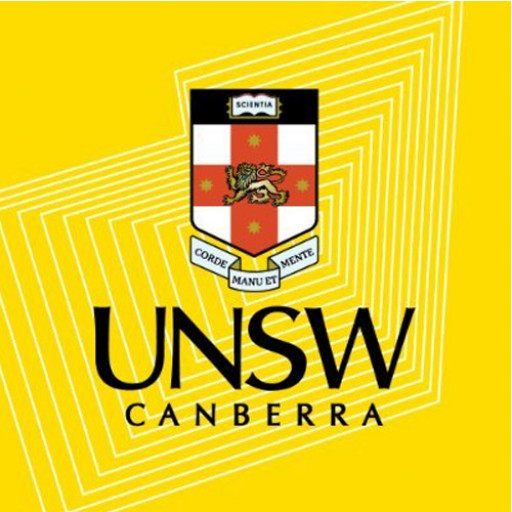Photos of university / #universitysa
The Bachelor of Cybersecurity at the University of South Australia is a comprehensive degree program designed to prepare students for the rapidly evolving field of information security. This program provides students with a solid foundation in the principles of cybersecurity, including network security, cryptography, threat management, and digital forensics. Throughout the course, students will develop practical skills in identifying and mitigating cyber threats, securing systems and data, and understanding the legal and ethical issues associated with cybersecurity practices. The curriculum combines theoretical knowledge with real-world applications, enabling graduates to confidently address security challenges in various organizational contexts.
Students will engage with cutting-edge topics such as ethical hacking, intrusion detection, malware analysis, and cloud security, guided by experienced faculty members who are experts in their fields. The program emphasizes hands-on learning through laboratories, industry projects, and internships, ensuring students gain valuable practical experience. Additionally, students will learn about the latest developments in cybersecurity technology and methodologies, preparing them for professional roles in government, private sector, or as cybersecurity consultants. The degree also explores the importance of policy development, risk assessment, and compliance with regulatory standards, equipping graduates with a well-rounded understanding of the cybersecurity landscape.
By completing this program, students will be well-positioned to pursue careers as cybersecurity analysts, security consultants, network administrators, or penetration testers. The University of South Australia’s strong industry connections and emphasis on practical training ensure that graduates are workplace-ready and capable of addressing current and emerging cybersecurity challenges across diverse industries. With the increasing demand for cybersecurity professionals worldwide, this degree offers valuable opportunities for career advancement and specialization in this vital field.
This two year (72 unit) program will provide students with specialist knowledge relevant to the field of cybersecurity. There are two courses designed to update and refresh students' underlying body of knowledge. Technical courses then cover the various cybersecurity aspects of a complex enterprise architecture. Organisational context is considered throughout the program in a series of courses covering security principles, operations, planning, compliance and consultancy. There are three capstone courses: the capstone technical course (Security Architecture) allows students to undertake in-depth cybersecurity exercises in a virtual real-world environment; the capstone consultancy course provides students with the skills required to operate effectively in a corporate environment; the capstone professional project offers the opportunity for students to integrate and apply skills and expertise developed throughout the program.
Applicants will normally have completed a Bachelor Degree in Information Technology or related or equivalent.
Applicants who have completed a Bachelor Degree or higher in any discipline may also be considered for entry based upon their IT expertise gained through formal tertiary studies and/or relevant work experience. These applicants are required to submit a detailed curriculum vitae.
English language entry requirements
In addition, international students of non-English speaking backgrounds must have obtained one of the following standards within the last two years prior to admission. Possession of one or more of these qualifications, in addition to the academic entry requirements, does not, in itself, guarantee a place at the University of South Australia. Applications are considered on an individual basis and selection is competitive. Where previous study/work experience was conducted in English, the application must be accompanied by certified documentation from the educational institution/employer certifying that the language of instruction/employment was English.
English language test
- IELTS total: - 6.5
- IELTS reading: - 6
- IELTS writing: - 6
Each year, more than 2,500 students at the University of South Australia benefit from scholarships and grants worth millions of dollars. We welcome high achieving students from developing countries who are supported by the Australian government program, Australia Awards. We also host around 500 students who are sponsored by their home government, university or employer.
The Bachelor of Cybersecurity at the University of South Australia is designed to equip students with the critical skills and knowledge necessary to protect digital information and infrastructure from cyber threats. This program offers a comprehensive curriculum that covers a wide range of topics including network security, ethical hacking, digital forensics, cryptography, and information assurance. Students will learn how to identify vulnerabilities within computer systems, develop strategies to mitigate security risks, and respond effectively to cybersecurity incidents.
The program emphasizes both theoretical understanding and practical application, providing students with hands-on experience through labs, simulations, and industry projects. This approach prepares graduates for real-world challenges in various sectors such as finance, government, healthcare, and private enterprise. The curriculum is aligned with current industry standards and incorporates the latest technologies and practices in cybersecurity.
Students in the program have access to state-of-the-art facilities and laboratories that enable them to practice skills in a simulated environment. They are also encouraged to undertake internships and industry placements, fostering connections with cybersecurity professionals and gaining valuable workplace experience. In addition, the program covers key areas including risk management, compliance, and legal considerations associated with cybersecurity.
Graduates of the Bachelor of Cybersecurity are well-prepared to pursue careers as cybersecurity analysts, security consultants, network security engineers, digital forensics investigators, or incident response specialists. The program also provides a solid foundation for further study or research in cybersecurity and related fields.
The university emphasizes a supportive learning environment with experienced faculty members who are experts in cybersecurity. Students benefit from access to a range of resources, including online learning platforms, research centers, and professional development opportunities. The Bachelor of Cybersecurity program aims to produce graduates who are knowledgeable, ethical, and proactive in safeguarding the digital world.
The program typically requires three years of full-time study, and students may have opportunities to study part-time or engage in exchange programs at partner institutions abroad. Overall, the Bachelor of Cybersecurity at the University of South Australia provides a robust foundation for those seeking a career in this dynamic and rapidly evolving field, addressing the increasing global demand for cybersecurity professionals.








